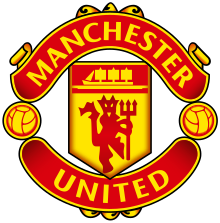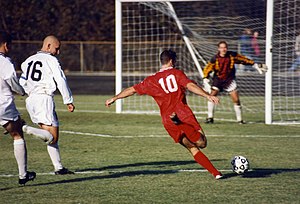Ferguson: Knows losers will have regret
Sir Alex Ferguson says there will be a deep sense of regret for whichever Manchester club fails to lift the Barclays Premier League title this term.
At one point City were five points clear and apparently cruising to their first championship since 1968, while it is only three weeks since United held an eight-point advantage.
But now the pair meet at the Etihad Stadium on Monday knowing the victor will be overwhelming favourites with just two games to go.
"If one loses they will be reflecting on what might have been," said Ferguson."The points total which both teams will probably amass, it is championship form.
"But it will be tinged with regret simply because it is the derby thing.
"You can't get away from it. It is our fans' most bitter rivals.
"For me it is just another league. For the supporters it is special."
Ferguson has opted to take United out of Manchester for the build-up, instead heading to South Wales at a bolt hole near Cardiff to escape the almost insatiable appetite for debate on Monday's game.
The local paper has published a map of the strongholds for both United and City within the Manchester boundaries, which have quickly been disputed.
It is pointless anyway. On streets and even individual houses, there can be red and blue, all with an opinion on what Ferguson has already stated will be the biggest Manchester derby ever.
"It means everything to a supporter. It is everything," said Ferguson.
"For both sets of supporters, going to work on Tuesday will be the most important day of their lives.
"People have been brought up to what they are through their fathers and their grandfathers and grandmothers. You can't change a families traits.
"I saw a banner at Ibrox recently that said: 'Supporting Rangers for 139 years'. That sums it up.
"It is in the blood of the supporters and I know a lot of our supporters who would give everything to win this game on Monday."
If anything, the contest is more enjoyable due to the attitude of the respective managers.
No quarter will be given once the action starts, with both Ferguson and City counterpart Roberto Mancini equally desperate to secure the right result for them.
However, there also appears to be a genuine respect.
"Roberto Mancini is second top of the league at the moment with the league decider on Monday," said Ferguson.
"That is great progress. It is a step forward for them. That is the only way you can measure it really, isn't it?"
Source: http://www.freefootball.org/newsite






